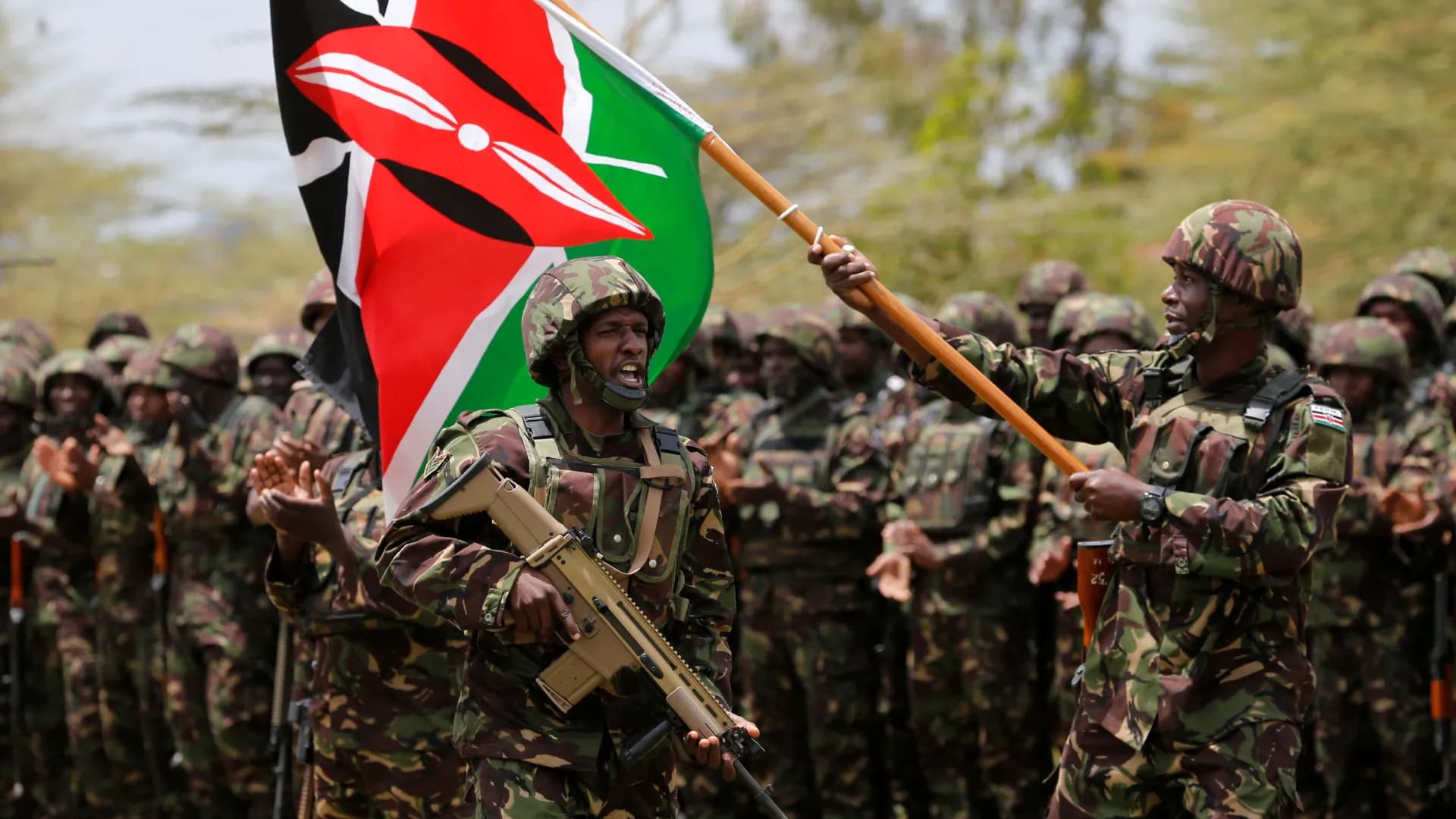We're loading the full news article for you. This includes the article content, images, author information, and related articles.
Kenyan Quick Reaction Force troops, serving under MONUSCO, recently conducted a long-range patrol in North Kivu, Democratic Republic of Congo, to bolster civilian protection and engage with local communities amidst persistent armed conflict.

Kenyan soldiers operating under the United Nations Organisation Stabilisation Mission in the Democratic Republic of Congo (MONUSCO) have intensified their efforts to secure communities in the volatile North Kivu Province. The Kenya Defence Forces (KDF) announced on Wednesday, October 22, 2025, that its Quick Reaction Force (KENQRF) contingent undertook a long-range patrol across Mbau, Mandumbi, and Mangina areas. This operation aimed to reassure residents of their safety and contribute to ongoing security stabilisation efforts in the region.
The patrol was a collaborative effort, conducted jointly with troops from the 33rd Rapid Reaction Brigade of the Armed Forces of the Democratic Republic of Congo (FARDC). This joint operation highlights the continued cooperation between MONUSCO and FARDC, which is crucial for protecting civilians and restoring peace in areas previously affected by armed conflicts.
Kenya has been a significant contributor to UN peacekeeping missions globally since 1979, with deployments in various countries including Somalia, South Sudan, and Sierra Leone. The deployment of Kenyan troops to MONUSCO in the DRC began gradually in 2020, following a 2019 request from the Congolese government to international partners to enhance the operational capabilities of the MONUSCO Intervention Brigade. The current deployment represents the fourth contingent of the KENQRF, undertaking a standard rotation.
The Democratic Republic of Congo, particularly its eastern provinces like North Kivu, has endured decades of instability due to the presence of numerous armed groups, including the M23 movement and the Allied Democratic Forces (ADF). These groups have been responsible for widespread attacks against civilians, leading to a severe humanitarian crisis and massive displacement. Over 7.8 million people are internally displaced in the DRC, with North Kivu being one of the most affected provinces.
MONUSCO's mandate, established by the UN Security Council, primarily focuses on the protection of civilians, stabilising the country, and supporting the implementation of peace and security frameworks. The mission is authorised to use all necessary means to carry out its mandate, including protecting humanitarian personnel and human rights defenders. The Kenyan Quick Reaction Force's role within MONUSCO includes engaging in operations against armed groups, protecting civilians, supporting humanitarian efforts, and aiding in the disarmament, demobilisation, and reintegration of former combatants.
The collaboration between MONUSCO and FARDC is a critical aspect of the mission's strategy, despite past challenges in coordination and communication. MONUSCO has also been involved in providing training in human rights, child protection, and protection from sexual and gender-based violence for Congolese security forces.
Lieutenant Colonel Simon Seda, the KENQRF Contingent Commander, stated that the recent patrol served both operational and humanitarian purposes. Beyond maintaining a visible security presence, the mission facilitated direct engagement between peacekeepers, local leaders, and residents. Discussions during these interactions focused on security concerns, community resilience, and ways to enhance cooperation between peacekeepers and civilians. Lieutenant Colonel Seda reaffirmed KENQRF's commitment to supporting MONUSCO's broader efforts to restore peace and stability in North Kivu, emphasising continued engagement with community leaders to build trust and foster peaceful coexistence.
Local residents have reportedly expressed appreciation for such patrols, noting their significance in deterring insurgent movements and boosting confidence in ongoing peace efforts. Kenyan troops have consistently received commendation for their professionalism, discipline, and commitment to duty from MONUSCO officials.
The security situation in North Kivu remains precarious, with daily reports of criminality and targeted violence by armed groups. Humanitarian access to affected areas is often difficult due to ongoing fighting and security concerns, further complicated by issues like GPS jamming and misinformation campaigns. The presence of armed groups near internally displaced persons (IDP) sites and humanitarian infrastructure poses significant risks to both civilians and aid workers.
The conflict in eastern DRC also carries the risk of regional escalation, particularly with the involvement of neighbouring countries and the alleged support for armed groups like M23.
While MONUSCO plays a crucial role, the ultimate responsibility for civilian protection rests with the Congolese government, which has faced challenges in assuming this responsibility. The effectiveness of UN security initiatives in Africa, including MONUSCO, is also a concern due to funding shortfalls, which have led to significant reductions in peacekeepers worldwide.
The United Nations Organisation Stabilisation Mission in the Democratic Republic of Congo (MONUSCO) was established in 2010, taking over from an earlier UN peacekeeping operation, MONUC. Kenya's involvement in MONUSCO began with gradual troop deployments starting in 2020. The recent long-range patrol by KENQRF troops on Wednesday, October 22, 2025, is part of ongoing efforts to stabilise North Kivu.
Observers will be closely watching the impact of continued joint patrols by KENQRF and FARDC on civilian protection and the overall security situation in North Kivu. The effectiveness of MONUSCO's broader mandate, especially in light of UN peacekeeping funding cuts, will also be a key area of focus. Furthermore, the ongoing efforts to foster trust and cooperation between peacekeepers and local communities will be critical for long-term stability.
Keep the conversation in one place—threads here stay linked to the story and in the forums.
Sign in to start a discussion
Start a conversation about this story and keep it linked here.
Other hot threads
E-sports and Gaming Community in Kenya
Active 9 months ago
The Role of Technology in Modern Agriculture (AgriTech)
Active 9 months ago
Popular Recreational Activities Across Counties
Active 9 months ago
Investing in Youth Sports Development Programs
Active 9 months ago